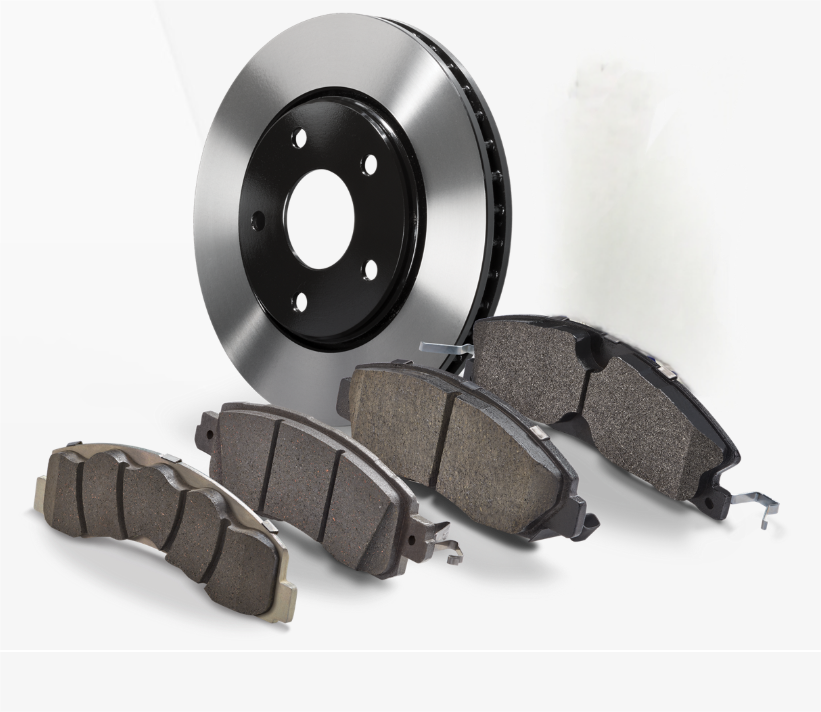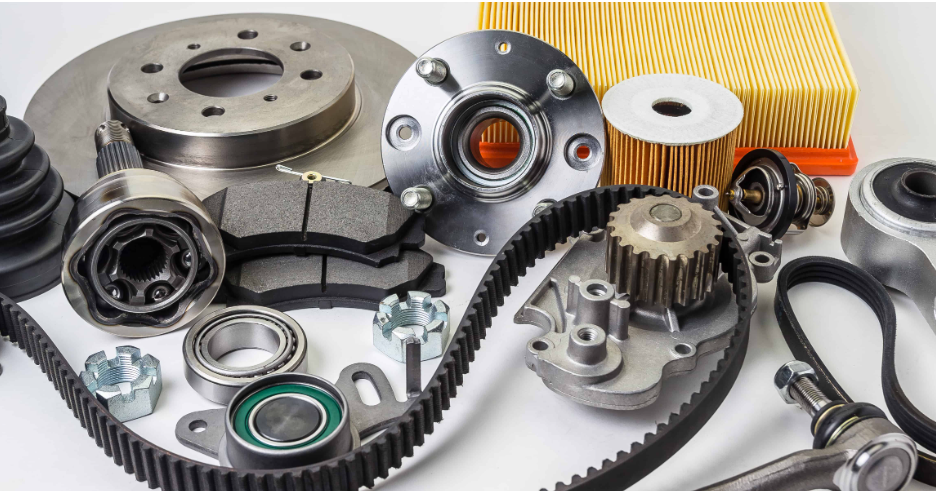Key Features of a Quality Truck Fuel Pump
Durability Under Heavy-Duty Conditions
Durability matters a lot when picking out a truck fuel pump because these vehicles run in some pretty rough conditions. Good quality pumps need to handle all sorts of punishment including constant vibrations from bumpy roads and temperature swings between freezing nights and scorching days on highways. The ability to stand up to these challenges makes all the difference in how long they actually last before needing replacement. From what we've seen in real world applications, pumps built to last tend to keep going much longer than cheaper alternatives under similar workloads. Anyone serious about getting reliable performance from their truck should pay close attention to build quality when shopping around for fuel system components.
Material Quality & Corrosion Resistance
When looking at truck fuel pumps, material quality matters quite a bit. High grade stuff like stainless steel stands up better against those corrosive fuels we throw at them, which means the pump won't break down so quickly. Most mechanics will tell anyone who'll listen that corrosion actually causes more failures than anything else. That's why knowing what kind of materials went into building these parts makes all the difference. Some newer coatings and special treatments are coming onto the market too, which helps prolong the life of the pump significantly. For fleet managers and individual truckers alike, focusing on corrosion resistance isn't just smart maintenance it's practically essential if they want their fuel systems to last without breaking the bank.
Flow Rate & Pressure Specifications
Getting the right fuel pump for a truck engine means matching it to the actual flow needs of that particular engine. The connection between proper fuel flow and how well the engine runs is pretty straightforward really. If there's not enough pressure pushing fuel through, engines tend to stall out or just run poorly overall. Most mechanics will tell folks to go for a fuel pump that actually delivers more than what's listed as the minimum requirement. Knowing what those numbers mean makes all the difference when shopping around for quality truck fuel pumps. Engines last longer and perform better when they get exactly what they need, no more, no less.
Electric vs Mechanical Fuel Pumps for Trucks
Advantages of Modern Electric Fuel Pumps
Electric fuel pumps have become the go to option for most modern trucks on the road today. They run much quieter than those old fashioned mechanical ones, cutting down on all that annoying pump noise drivers used to complain about. What really makes these pumps stand out though is how they atomize fuel so efficiently. This means better combustion inside the engine cylinder, which translates to improved power delivery across the board. Most manufacturers now build their trucks with electric fuel systems from day one. The integration isn't just convenient it actually helps squeeze every last drop of performance and economy out of each tank of fuel.
When Mechanical Pumps Might Be Suitable
Electric fuel pumps sure are everywhere these days, but sometimes mechanical ones still make better sense, particularly with those classic trucks from the 70s and 80s. What makes mechanical pumps stand out? They just work reliably without all sorts of fancy electronics getting in the way. No wires, no sensors means no headaches about electrical problems either. That's why so many folks stick with them on older vehicles where finding replacement parts isn't such a big deal at the local auto shop. Plus, the simple construction makes it easier to swap out worn components without needing special tools or technical know-how.
Fuel Efficiency Comparisons
Research comparing different types of fuel systems shows that electric fuel pumps tend to be more efficient when it comes to burning fuel compared to traditional mechanical ones. These electric versions actually help save quite a bit on gas, something that matters a lot in industries where vehicles run nonstop like long distance trucking operations. Because they deliver fuel more efficiently, engines perform better overall too. Fleet managers need to understand this difference between pump types if they want to make smart choices about what equipment goes into their trucks. Picking the right kind of pump can lead to major cost reductions at the pump station while keeping those big rigs running smoothly mile after mile.
Common Causes of Fuel Pump Failure in Trucks
Contaminated Fuel Risks
Fuel contamination is actually one of the main reasons why truck fuel pumps fail, and this problem doesn't stop at just the pump itself. The entire fuel system gets affected when contaminants build up over time. Industry data shows around 60% of all pump failures come down to dirty fuel, which means mechanics spend a lot of time cleaning out debris from systems that should be running clean. Doing regular fuel testing makes sense because it catches small issues before they turn into major headaches later on. Truck operators who invest in good quality fuel along with proper filtration equipment tend to see fewer breakdowns overall. A well maintained fuel system isn't just about avoiding repairs either—it keeps engines running smoother day after day without unexpected surprises.
Overheating & Electrical Issues
When fuel pumps overheat, it really takes a toll on their components and can lead to total breakdowns down the road. Electrical problems are just as damaging too. Things like bad grounding connections or wires that aren't working properly significantly cut short how long a fuel pump will last. Keeping an eye on system voltage levels serves as an important early warning system against these kinds of electrical troubles before they turn into big headaches. Regular inspections of electrical systems represent smart maintenance practices that help protect diesel engines from unexpected electrical failures in the field.
Wear Patterns in High-Mileage Engines
Trucks that have clocked many miles tend to show particular problems over time, especially when it comes to fuel pumps. These vehicles develop distinct wear spots that usually point toward trouble ahead with the fuel system. Knowing what to look for helps mechanics catch problems early before they turn into expensive repairs down the road. Most shops recommend checking these common wear areas during routine service visits for older trucks. Adding these inspections to regular maintenance keeps operators one step ahead of possible breakdowns and maintains better overall performance from their fleet assets.
Selecting the Right Fuel Pump for Your Truck
OEM vs Aftermarket Compatibility Checks
The choice between OEM (Original Equipment Manufacturer) fuel pumps and aftermarket alternatives really matters when it comes to how well a truck performs and stays reliable over time. Parts made by OEMs are built specifically for each vehicle model, which means they generally work better together without problems. Aftermarket pumps tend to be cheaper though, sometimes saving hundreds of dollars on parts costs. But there's a catch - these cheaper options might not always fit properly or perform as expected because they weren't designed for that exact truck model. Before buying anything, take some time looking at what specs matter most for the particular truck in question. Check online forums where real owners talk about their experiences too. Many mechanics recommend checking out brands like S&S Diesel Motorsport who specialize in creating high quality fuel systems that actually work well with today's complex diesel engines rather than just being cheap copies.
Matching Pump Capacity to Engine Demands
Knowing exactly what your truck's engine needs when it comes to horsepower and torque makes all the difference when picking out a fuel pump with the right capacity. Get this wrong and the consequences can be serious - engines run inefficiently at best or suffer actual damage at worst. That's why getting accurate measurements matters so much. If unsure where to start, look into factory specs from the manufacturer or talk to someone who knows their way around diesel systems. The numbers for horsepower and torque basically tell us how much fuel flow the engine actually requires to keep performing well even when conditions change. Getting the pump size right means avoiding those frustrating power drops and keeping everything running smoothly without unexpected hiccups down the road.
Cost vs Longevity Considerations
Getting the right balance between what we pay at the start and how long a fuel pump lasts makes all the difference when looking at savings down the road. Sure, paying more initially can feel like a big hit to the wallet, but good quality fuel pumps just don't need fixing or replacing as often. Research indicates that folks who spend more on solid pumps usually deal with far fewer headaches later on. And let's not forget about those warranty periods and customer service options either they really do affect whether something ends up being worth the money spent. When thinking about upgrading or maintaining a trucks fuel system, keep these points in mind because decent parts generally hold up better and work smoother for years instead of months.
Maintenance Tips to Extend Fuel Pump Life
Fuel Filter Replacement Intervals
Changing fuel filters regularly is really important for keeping a truck's fuel pump running smoothly and lasting longer. Most mechanics will tell owners to stick with the manufacturer's suggested schedule because dirty filters cause all sorts of problems down the road. When filters get clogged, they force the pump to work harder than it should, leading to premature wear. Studies have shown that skipping regular filter changes can cut the pump's life almost in half sometimes. That kind of damage adds up fast when considering repair costs versus regular maintenance expenses. For anyone who wants their truck to keep performing well without unexpected breakdowns, making time for these simple but critical maintenance tasks makes complete sense both financially and operationally.
Preventing Fuel Starvation Damage
Fuel starvation will definitely wreck a truck's fuel pump over time, so keeping some gas in the tank makes all the difference for longevity. Most folks don't realize that running below empty puts serious strain on the system since pumps rely on fuel for cooling. Especially when hitting the road for days at a stretch, drivers need to keep track of those gauges because it's easy to forget how much fuel remains after hours of driving. Just maintaining decent fuel levels throughout the journey saves money down the road by avoiding expensive fixes later on. It might seem small, but this habit actually protects what amounts to thousands invested in vehicle maintenance and ensures everything keeps working properly without surprises.
Diagnosing Early Warning Signs
Spotting problems with fuel pumps before they get bad can really stretch out how long the pump lasts. Operators need to watch out for things like strange sounds coming from the engine area, when the vehicle starts guzzling fuel instead of being efficient, or if there's inconsistent pressure readings during regular inspections. Getting drivers trained to notice these warning flags makes all the difference in catching issues while there's still time to fix them. According to field studies conducted across multiple transportation companies, fixing small problems early on cuts down replacement costs somewhere around 75-80%. Regular maintenance routines combined with smart monitoring practices help keep vehicles running smoothly while keeping repair bills under control in the long run.







